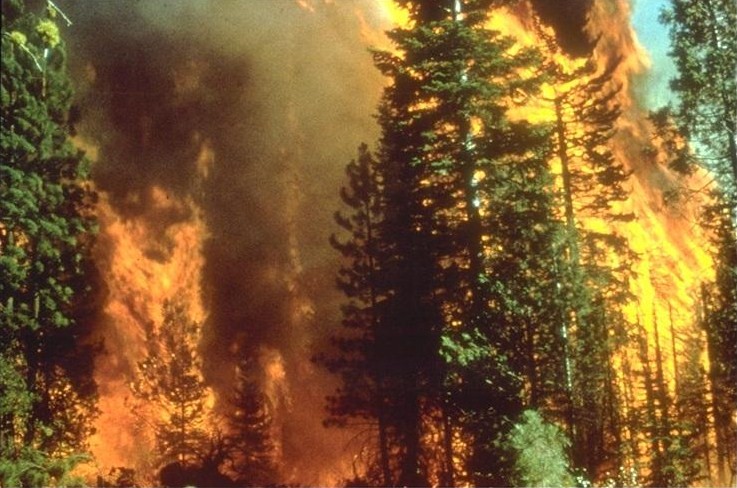OPINION: Countdown to the 3rd: The fire rises
West coast continues to burn; U.S. environmental policy is to blame
With wildfires raging, sometimes it’s important to take a step back and consider how we got here.
September 15, 2020
“What happened to the American dream?
It came true. You’re looking at it.”
– Alan Moore, “Watchmen”
I walked out of my apartment this morning, and it smelled like a campfire.
The smoke soaked into my clothes and gave everything a musky, raw odor. To the north and to the south, within 20 miles, there are wildfires burning. To the west, Seattle, California and the entire west side of Oregon is on fire.
The smoke tints the air orange and gives everything a “Children of Men” aura. It feels, quite frankly, like being inside an upturned fishbowl and watching the house burn down around you.
American ecological policy, for time immemorial, has been ruthlessly centered around shaping the environment to our needs, and not the other way around.
In certain instances, this has brought us great marvels — the Panama Canal, the Trans-Alaska Pipeline System, the raw power of an Arctic icebreaker ship.
But it’s an attitude that’s also brought incredible destruction — the dust bowl of the ‘30s, Rachel Carson’s “Silent Spring,” the Exxon Valdez oil spill.
More recently, that attitude has brought us wildfires up and down the west coast, destroying vast swaths of California and displacing hundreds of thousands of families from their homes.
It’s that attitude — the “damn the torpedoes and full speed ahead” mindset — that’s gotten us stuck in a quagmire of political infighting and forest fires.
But it’s not strictly politics – Noam Chomsky, the famous Massachusetts Institute of Technology linguist, talks about the mercantilism inherent in U.S. policy, and how under the guise of free-market capitalism, big business has been able to essentially write the rules to the game for the past 50 years.
“Our actual economic policy is … directed primarily to the needs of those who implement social policy, who are mostly the wealthy and powerful,” Chomsky wrote in “The Prosperous Few and the Restless Many.”
Why is California on fire for the second year in a row? Because it was considered economically inconvenient to pursue a more naturalistic approach to controlled burns and fire prevention.
In fact, the fact controlled burns were pushed off and even banned, is directly counter to the traditional knowledge that Native American tribes in California had been practicing for hundreds of years, prior to the U.S. settling the land.
“Cultural burns” were designed to keep the fires in check — and now we’re seeing the consequences of their removal.
Look around and examine the policies that keep Americans in check — they’re passed to preserve the safety and economic viability of an elite few.
Oil companies pay lip service to ecological management — and then pay pennies on the dollar to clean up oil spills.
I wrote earlier this month about how your representatives adamantly dislike you — and this applies to the policies they push as well because, at the end of the day, they’re in service to the people and companies that need their bottom line protected.
Why is the choice for president down to two tremendously wealthy, out-of-touch elites?
Because to do otherwise would threaten the established social order, which exists to protect the interests of the richest and most powerful.
Right now, a fire isn’t just a fire — it’s a symbol of misguided ecological policy, economic greed and disrespect for the land as anything more than a source of resources.
Moreover, the people seeing the effects aren’t the CEOs or political cronies — the people responsible for the problem — they’re homeowners and families, many with no insurance or idea of what to do. When a fire tears through your home, it’s hard to think, “At least Gavin Newsom has my back.”

















